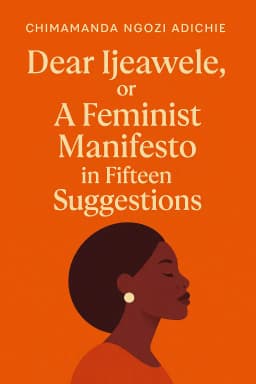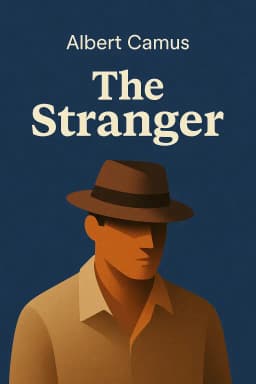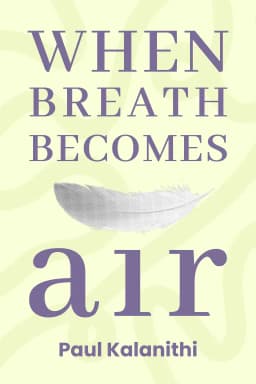
Shaping God, Forging Hope
Golden Hook & Introduction
SECTION
Michael: Most people think of hope as a feeling. A soft, gentle thing. But what if the most powerful form of hope is actually a weapon? A pragmatic, cold-eyed tool for survival when the world is ending. That's the territory we're in today. Kevin: That’s a heavy way to start. A weapon? It sounds almost cynical, but I’m intrigued. You’re saying hope isn’t about optimism, it’s about strategy. Michael: Exactly. It's about having a destination so compelling it forces you to survive the journey. And it's all from Octavia E. Butler's stunningly prophetic novel, Parable of the Sower. Kevin: Prophetic is the word. I was floored to learn she published this back in 1993. She was a trailblazer, one of the first science fiction writers to get a MacArthur 'Genius' Grant, and she was writing about climate change, wealth inequality, and social collapse with a clarity that feels like it was ripped from today's headlines. Michael: It's uncanny. She did meticulous research, studying everything from maps of California to accounts of people traveling on foot, just to make the world feel real. And she said she wouldn't write about anything that couldn't actually happen. Kevin: Well, she succeeded. The book is widely acclaimed, though some readers find it incredibly bleak. But it’s that very realism that makes her central idea so powerful. Michael: And the weapon she forges, the core of her strategy for hope, is a new religion called Earthseed, with a radical core idea: God is Change.
God is Change: A Radical New Faith for a Broken World
SECTION
Kevin: Okay, 'God is Change.' That sounds more like a physics principle than a prayer. What does that actually mean in this world she’s built? Michael: It’s a complete reframing of faith. The world of 2024 California is falling apart. Water is more expensive than gasoline, police are unreliable, and walled communities are the only islands of relative safety. The protagonist, a young woman named Lauren Olamina, sees that the old beliefs aren't working anymore. Her father is a Baptist minister, preaching about a God who will save them. But Lauren looks around and sees no evidence of that. Kevin: Right, she sees evidence of the exact opposite. I remember this one heartbreaking story about a neighbor, Mrs. Sims. A devout woman who believed in eternal damnation, but after a series of horrific tragedies, she commits suicide. Lauren can't reconcile that. How can your faith be so strong, yet so useless against the reality of your life? Michael: Precisely. Lauren’s conclusion is that the only truth, the only constant, is change. So, she builds a belief system around that. One of the core verses of Earthseed is: "All that you touch, You Change. All that you Change, Changes you. The only lasting truth is Change. God is Change." Kevin: So it's a religion of 'deal with it'? It feels a little cold. Where's the comfort in believing that the ultimate power in the universe is indifferent? Michael: That's the brilliant part. The comfort isn't in being saved; it's in being empowered. In Earthseed, you don't worship God. You shape God. Another verse says, "God is Power—Infinite, Irresistible, Inexorable, Indifferent. And yet, God is Pliable—Trickster, Teacher, Chaos, Clay. God exists to be shaped." Kevin: Whoa. So God isn't a benevolent father figure, God is... clay? A raw material? Michael: Exactly. It’s a radical shift from passivity to activity. Change is going to happen whether you like it or not. You can either be a victim of it, or you can learn its patterns, anticipate it, and work with it to create a better outcome. It’s a faith for survivors, not for worshippers. We see this in the story of her baptism. Her father dunks her in the water, reciting the traditional Christian words, but Lauren feels nothing. She’s already moved on. Her god isn't in a church; it's in the fires, the rising prices, the political chaos. Kevin: That makes so much sense. Butler herself was apparently fascinated by how belief systems form. She didn't just invent this; she researched world religions, especially Buddhism, and you can see that influence. It’s not about blind faith, but about mindful action and accepting the nature of reality. Michael: Yes, and it’s a direct response to the world around Lauren. She sees that clinging to the past, to the way things were, is a death sentence. Her father represents that. He wants to hold the community together with old rules and old faith, but Lauren knows the walls will eventually fall. She starts secretly packing a survival kit, learning to shoot, and writing down the verses of Earthseed. She’s preparing for the change she knows is coming. Kevin: It’s a philosophy born of necessity. If your world is defined by instability, you need a belief system that embraces instability as its core principle. It's genius. But it also leads to a very dark place. 'Shaping God' sounds great in a journal, but this world Butler built is unbelievably brutal. How does this philosophy hold up when someone is literally trying to kill you for a gallon of water?
The Brutal Reality of Collapse: Hyperempathy and the Price of Survival
SECTION
Michael: And that is the central tension of the entire book. Butler doesn't give us an easy answer. She introduces a concept that makes this question even more complicated: Lauren has a condition she calls 'hyperempathy syndrome.' Kevin: Right, her mother took a popular prescription drug during pregnancy, and it left Lauren with this... biological empathy. When she sees someone in pain, she feels their pain. Literally. If someone is shot, she collapses in agony. Michael: It’s a powerful metaphor for compassion, but in this world, it’s also a massive liability. And this is where the story of her brother, Keith, becomes so important. Keith is the complete opposite of Lauren. He sees the walled community not as a sanctuary, but as a cage. He chooses to leave and embrace the brutality of the outside world. Kevin: And he thrives, for a while. He comes back with money and goods he’s clearly stolen. He tells Lauren, "If you got a gun, you’re somebody. If you don’t, you’re shit." He even admits to robbing and likely killing a man who was trying to walk to Alaska. When Lauren asks him if it bothered him, he says, "It don’t bother me... after I did it, I didn’t feel nothing." Michael: He’s become what the world demands. He’s adapted to the change, but by becoming a monster. He even tells Lauren that her hyperempathy would get her killed out there. He says, "That hyperempathy shit of yours would bring you down even if nobody touched you." Kevin: And then... what happens to Keith is just one of the most horrific things I've ever read. He's found tortured to death. It’s a clear message from whatever criminal element he got mixed up with. It's so brutal, and it proves his point in a way. The world outside is no place for empathy. Michael: It does. But it also proves Lauren's point. Keith's path, the path of pure, selfish survival, also leads to a dead end. A horrific one. This is where Lauren's hyperempathy becomes so profound. After Keith's death, she reflects on it. She writes, "If hyperempathy syndrome were a more common complaint, people couldn’t do such things... But if everyone could feel everyone else’s pain, who would torture? Who would cause anyone unnecessary pain?" Kevin: Wow. So her 'weakness' is actually the potential solution to the world's sickness. It’s a biological conscience. If the people who tortured Keith had felt even a fraction of what they were inflicting, they couldn't have done it. Michael: Exactly. Butler is setting up an incredible philosophical conflict. To survive, you must be strong, even ruthless. But to be human, to build a better world, you must have empathy. Lauren has to walk this impossible tightrope. She has to be willing to kill to protect her group, but every time she does, her hyperempathy makes her share in the death. Kevin: That’s an incredible burden for a leader. It forces a kind of brutal moral calculus on every single act of violence. Is this pain I'm about to inflict absolutely necessary? Because I'm going to feel it too. Michael: It's the ultimate check on power. And it raises the question: how do you possibly move forward? How do you survive this level of brutality and loss without just giving in to despair? Kevin: Yeah, after her community is finally destroyed in a firestorm of violence, and she’s on the road with a few other survivors, the world gets even worse. They see things... cannibalism, a dog carrying a child's severed arm... it's just pure, unrelenting horror. What could possibly keep you going? Michael: And that's the ultimate question Butler poses. How do you survive the brutality without losing your humanity? The answer, for Lauren, is to have a goal so big, so audacious, it makes the daily horror survivable. And that goal is the stars.
The Destiny is in the Stars: Hope as a Radical Act
SECTION
Kevin: The stars. It sounds like pure escapism at first. Like, 'this world is terrible, so I'll just dream about space.' Michael: It seems that way, but it’s the most pragmatic part of her entire philosophy. The ultimate destiny of Earthseed is to "take root among the stars." It’s not a metaphor. It’s the literal, long-term goal of the community she is trying to build. Kevin: So all the survival skills, the community building, the painful journey north... it's all in service of this grander mission? Michael: Yes. It gives everything a purpose beyond mere survival. There's a beautiful, quiet moment early in the book where Lauren is a child, looking at the night sky with her stepmother. Her stepmother is nostalgic for the old days when city lights blocked out the stars. But Lauren says, "I’d rather have the stars... The stars are free." For her, they represent a future that isn't owned, isn't broken. Kevin: And that idea gets reinforced later with the story of the astronaut, Alicia Leal, who dies on Mars. Lauren sees her as a hero, a pioneer. It's not just about escaping Earth's problems; it's about humanity fulfilling a destiny. Michael: Exactly. The Earthseed verse for this is: "We are Earthlife preparing to take root in new ground, Earthlife fulfilling its purpose, its promise, its Destiny." This vision is the engine of hope. When they are on the road, facing starvation and violence, the idea of 'Acorn'—the first Earthseed community—is what keeps them together. It’s a tangible step toward that cosmic destiny. Kevin: Wow. So it's not just about escaping. It’s about having a purpose. The journey north isn't just a flight from danger; it's the first step on a journey to another planet. That reframes everything. It turns a desperate scramble for survival into the beginning of an epic story. Michael: You've nailed it. That's why hope, in this book, is a weapon. It's not a passive feeling. It's an active, orienting principle. It's the North Star that guides you through the darkness. Without that grand, almost unbelievable destiny, the community would fracture. They'd turn on each other, just like everyone else. The dream of the stars is the unifying force that allows them to endure the horrors of the Earth. Kevin: It’s the ultimate act of 'shaping God.' You look at the chaos and instead of just reacting, you impose a new narrative on it. A narrative of purpose and destiny. That's incredibly powerful.
Synthesis & Takeaways
SECTION
Michael: And that's the genius of Octavia Butler. She isn't just writing a dystopian novel. She's giving us a blueprint for resilience. She argues that in times of chaos, we can't rely on old systems or supernatural saviors. We have to create our own meaning, build our own communities, and actively shape the forces of change ourselves. Kevin: The book is a cautionary tale, for sure. Butler was looking at the America of the early 90s—the growing wealth gap, environmental neglect, political polarization—and she just extrapolated. The scary part is how little she had to invent. Michael: She wanted her readers to think. In an interview, she said she hoped people would read the book and ask, "Where are we going? What sort of future are we creating? Is it the kind of future you want to live in? If it isn’t, what can we do to create a better future?" Kevin: It leaves you asking that exact question: What is the 'change' we're facing right now? Climate, politics, technology... And are we actively shaping it, or just letting it happen to us? It's a heavy question, but one the book makes you feel you have to answer. Michael: It's a call to action, disguised as a novel. A call to see the world as it is, but also to see the potential for what it could be, and to understand that the power to bridge that gap lies within us. Kevin: It’s a profound and, frankly, terrifying book. But it leaves you with this strange, tough, and resilient kind of hope. The kind you might actually be able to use. Michael: It's a question we'd love to hear your thoughts on. Find us on our socials and let us know what 'Earthseed' might look like in our world today. What would be its core tenets? Kevin: That’s a great question. I’m genuinely curious to see what people come up with. Michael: This is Aibrary, signing off.









